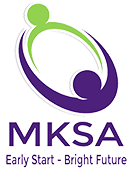A written statement prepared by the CPSE or CSE which specifies the child’s current level of performance, annual goals and short-term instructional objectives or benchmarks (for preschool students ) and frequency, duration and location of special education and related service to be provided.
Archives: Terms to Know
Inclusion
Educating students with disabilities in the same classroom as children without disabilities. The class is led by a general education teacher.
IDEA
The Individuals with Disabilities Education Act is a law that states that children with disabilities have the right to a free appropriate public education, including procedural protections and the right to an education that is standards based.
Hypoactivity
Underactivity; a hypoactive child may appear to be in a daze, lacking energy.
Hyperactivity
Disorganized and disruptive behavior characterized by constant and excessive movement.
Gross Motor Skills
The use of large muscles for activities requiring strength and balance, such as walking, running and jumping.
Functional Behavioral Assessment (FBA)
The process of determining why a child engages in behaviors that impede learning. It identifies the problem behavior, facts that contribute to the behavior and under which conditions the behavior occurs.
Fine Motor Skills
The use of small muscles for precision tasks such as writing, eating, zipping a zipper and doing puzzles.
Extended School Year Services
12 month program.
Expressive Language
The “output” of language which includes words, gestures or facial expressions.
